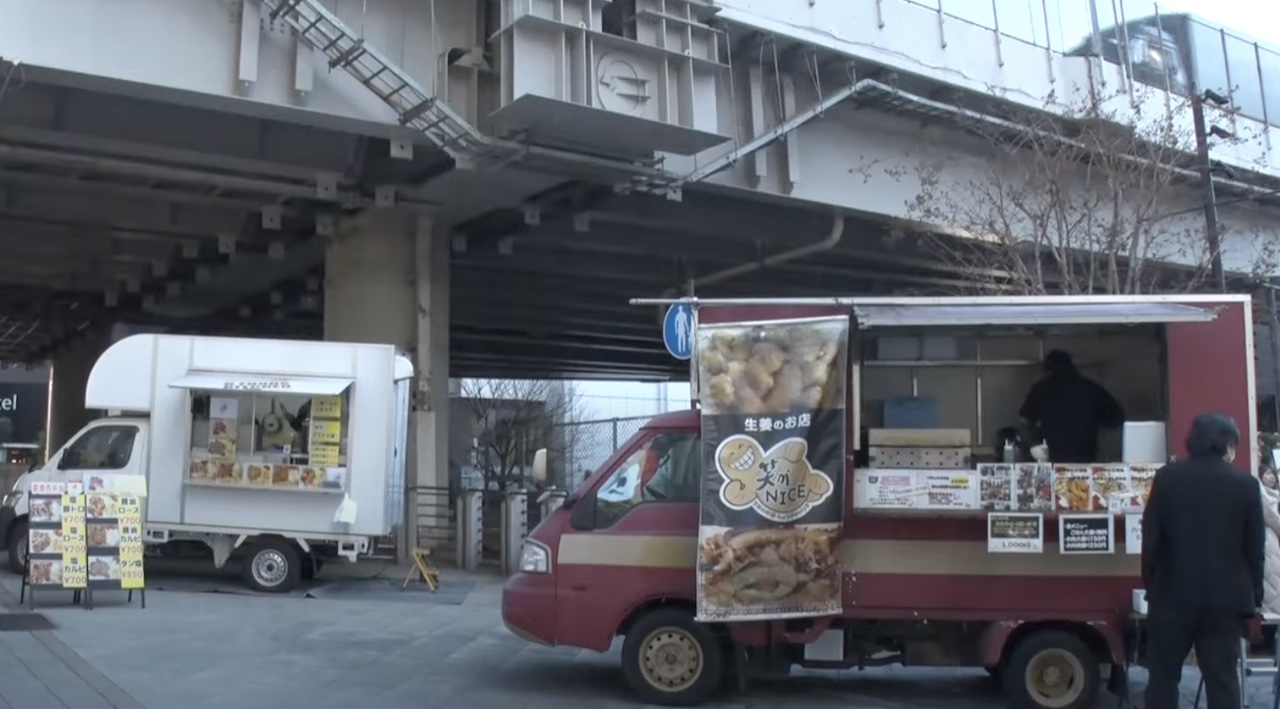TOKYO, Jan 28 (News On Japan) - In the wake of the pandemic, the number of kitchen cars has surged, with unique cuisine and quality becoming crucial for survival. A 25-year-old man ventured into this market with Edo-style sushi, using wasabi from his family's farm. However, on the opening day, unexpected troubles arose.
Culinary Battles in Kitchen Cars
A regular customer says, "With food trucks changing daily, I always try different ones."
At Otemachi Kawabata Food Garden in Chiyoda, Tokyo, about 10 kitchen cars rotate daily, offering a variety of international cuisines. The kebab kitchen car, in particular, had a long queue.
Customers express their willingness to wait in line for their favorite chicken kebab, priced reasonably at 750 yen.
A Taiwanese food truck offers authentic flavors of 'Lu Rou Fan' at 800 yen, and the New York staple 'Chicken Over Rice' is available at 880 yen, featuring spiced chicken and tangy sauce over turmeric rice.
Gourmet Pizza Battles
Mellow, which introduces kitchen car locations, reports a fourfold increase in registrations since the pandemic.
Mellow's CEO Masayoshi Ishizawa notes, "The low startup cost has attracted many new entrants. To be chosen by customers, it's not just about taste, but also service quality."
As the number increases, only those offering restaurant-quality dishes can survive.
Among them, a transformed truck parked in front of an office building in Tokyo is worth further investigation. Offering gourmet pizza, this kitchen car has gone to the next level.
TJK PIZZA's owner, Mr. Light Elbe (54), a French national, installed a top-of-the-line Italian pizza oven inside the truck. This 850,000 yen oven enables him to bake authentic pizzas.
Elbe says, "Quality is key. Customers won't be satisfied with price alone."
The Challenge of a Sushi Kitchen Car
An unusual kitchen car targeting sushi-lovers has social media tongues melting. The young owner, 25-year-old Sakai Kobayashi, from a fishing town in Shizuoka, sought to use his family's wasabi in his venture.
As a cost-cutting measure, his mother, Takara, helped him modify the kitchen car. Even though she worries for her son, she supports his ambition.
After training in a famous sushi restaurant in Tokyo, Kobayashi decided to use his family's wasabi to promote their business.
On the opening day, he rushed to Toyosu Market for fresh ingredients. But he was late due to the preparation time.
His first order was a 1,500 yen 'Bara Chirashi,' followed by more customers, but the service was slower than expected. The day ended with just five customers and 15,000 yen in sales.
Kobayashi realized the need to streamline his operation. Despite a tough start, his journey with the family-dream kitchen car had just begun.
Source: ANN



 by
by 












